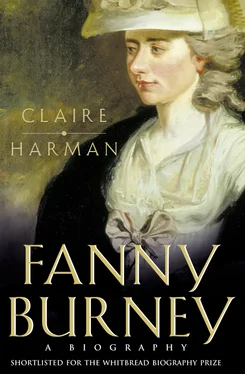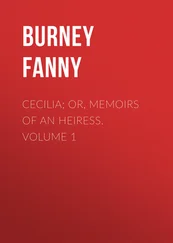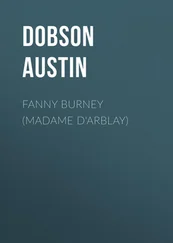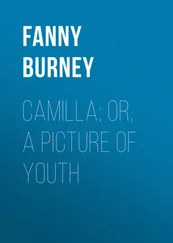Charles Burney returned from depositing Hetty and Susan in Paris in the summer of 1764 in a mood of renewed optimism. He had bought a great many books and indulged one of his favourite pastimes, introducing himself to famous men (in this case the philosopher David Hume, then secretary to the English Ambassador). Burney’s ambitions were still unfocused. He couldn’t work out how to insert himself into the literary world except through the theatre, where his friendship with Garrick – who consistently encouraged his work as a composer for the stage – gave him a foothold. A nice opportunity opened up in 1765 when Garrick suggested that Burney should translate Jean-Jacques Rousseau’s operetta Le Devin du village for production at Drury Lane. Burney happened to have made an English version of this piece some years before, and its transition to the stage was swift, though not as successful as the translator probably hoped. The first night of The Cunning-Man , in November 1766, was watched from Mrs Garrick’s box by the Burney children Hetty (who had stayed in Paris only a year), Fanny, Charles and possibly even little Charlotte, all sitting forward to monitor the audience’s reactions to their beloved father’s debut as a writer. They themselves were being watched from the orchestra by Garrick, who seems to have been more interested by the spectacle in the box than the one on the stage, and described to Charles Burney later,
the innocent confidence of success with which [the children] all openly bent forward, to look exultingly at the audience, when a loud clapping followed the overture: and their smiles, or nods; or chuckling and laughter, according to their more or less advanced years, during the unmingled approbation that was bestowed upon about half the piece – contrasted with, first the amazement, next, the indignation; and lastly, the disappointment, that were brought forth by the beginning buzz of hissing, and followed by the shrill horrors of the catcall: and then the return – joyous, but no longer dauntless! – of hope when again the applause prevailed. 10
The possibility of hissing and catcalls had clearly not crossed the children’s minds. It was a rude awakening to the fact that though their father seemed a demi-god at home, he had yet to prove himself to the rest of the world. The children were not ignorant of theatre audiences’ rough manners. Noisy commentary, free criticism, missile-hurling and occasional fisticuffs were part and parcel of a night out at either of London’s licensed playhouses. The attention of the crowd was hard to attract and, once gained, fickle and demanding, and though the segregation of the crowd into gallery, pit and boxes afforded some protection to members of the audience from each other, no part of it felt any obligation to respect what was going on on the stage. Fanny Burney satirised the situation memorably in the Drury Lane episode in Evelina , where the fop Lovel says of theatre-going, ‘one merely comes to meet one’s friends, and shew that one’s alive. […] I confess I seldom listen to the players: one has so much to do, in looking about, and finding out one’s acquaintance, that, really, one has no time to mind the stage […] pray – what was the play tonight?’ 11 The onus was on the manager and players, but most of all on the author, to entertain an essentially indifferent rabble. The unharmonious ‘buzz of hissing’ and ‘shrill horrors of the catcall’ that greeted their musician father’s first literary performance was, to the Burney children, a startling demonstration of that audience’s power.
With hindsight, Fanny Burney was in no doubt that her father’s ultimate aim in life had been to achieve fame as an author, and that The Cunning-Man marked a turning point for him. Her remarks in the Memoirs about the vocation they shared are revealing:
it was now that, vaguely, yet powerfully, he first fell into that stream of ideas, or visions, that seemed to hail him to that class indefinable, from its mingled elevation and abjectness, which, by joining the publicity of the press to the secret intercourse of the mind with the pen, insensibly allures its adventurous votaries to make the world at large the judge of their abilities, or their deficiencies – namely, the class of authors. 12
Fanny was writing this (in the 1820s) at the end of her own long career as a writer, which makes her persistent anxieties about the ‘mingled elevation and abjectness’ of authorship all the more interesting. When her own first book came to be published she was impressed, with traumatic intensity, by the fact that the author’s initial ‘intercourse of the mind with the pen’ (secretive and confidential) led to the total exposure of him or herself to an unknowably large and critical audience. As a novelist, Fanny Burney became both audience and performer, watching and anatomising the world around her which then, in the form of her readers, was free to read and anatomise her .
The example of the careless crowd at Drury Lane hissing her father’s work is likely to have intensified her fears of the judgemental ‘world at large’, but also demonstrated the mutually exploitative nature of the compact between artist and audience and the complexity of the traffic between doing, looking, speaking, writing and reading. The passage in the Memoirs about the first performance of The Cunning-Man both describes and demonstrates this. It records Garrick’s observations, but was actually written up by Fanny, one of the children he was observing, when she was composing her father’s Memoirs sixty years later. The passage seems to be a recollection by Garrick of watching the Burney children watching the audience that was watching their father’s translation of Rousseau’s operetta. It is actually a recollection by the elderly Madame d’Arblay of what her father reported that Garrick had acted out for him after the performance. The ‘incident’ when unpicked is seen to be not one but many, the different parts relating to each other in casual or even chaotic ways. Madame d’Arblay’s objective as a biographer and autobiographer was to obfuscate such complexities. Consciously or not, she was aware that observation and recollection are dynamic processes that can be arrested by the act of writing. Writing things down became her way of taking possession of the past and attempting to impose on it shape and meaning.
In the same year that Hetty and Susan went away to Paris, Charles Burney accidentally met and renewed his friendship with Samuel Crisp, his old acquaintance from Wilbury days. This was to be of great significance to Fanny, for Crisp became, after her father, the most respected and influential person in her early life. Crisp had first met Burney in 1747, when he was forty and the young musician only twenty-one. He was in an enviable position – handsome, highly cultured, uncumbered by wife or family and possessed of a private income. He spent his life in the improvement of his mind and the refinement of his taste: he read a great deal, travelled, listened to music, studied paintings and sculpture and was regarded as a true connoisseur of the arts by his friends, many of whom were aristocratic and most, like him, rich. Charles Burney was grateful for a really well-informed mentor who could educate him in ‘almost every species of improvement’ and for whom ‘the love of music […] amounted to passion’. 13 Thomas Arne had made the profession of music seem like drudgery, Crisp was the first person to show Charles that it could aspire to the highest aesthetic ideals.
Crisp, a collector of musical instruments and objets d’art , had brought back from one of his visits to Italy the first large pianoforte, or ‘harpsichord with hammers’, 14 that was ever constructed. Burney had ample opportunity to play this remarkable instrument and appreciate the ‘magnificent and new effect’ of the sound it produced when Crisp sold it to Fulke Greville. Crisp could play several musical instruments and had a tenor voice which Charles Burney thought better than that of many professional singers. But he never took part in the Burneys’ later musical evenings, preferring to keep his accomplishments to himself. He was a true dilettante, in Fanny’s words in the Memoirs , ‘a scholar of the highest order; a critic of the clearest acumen; possessing, with equal delicacy of discrimination, a taste for literature and for the arts’. 15
Читать дальше












